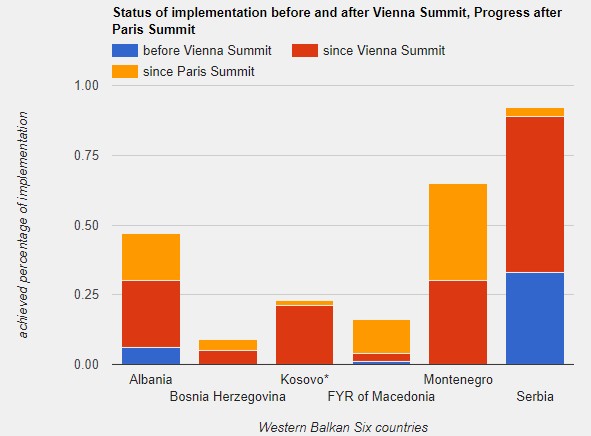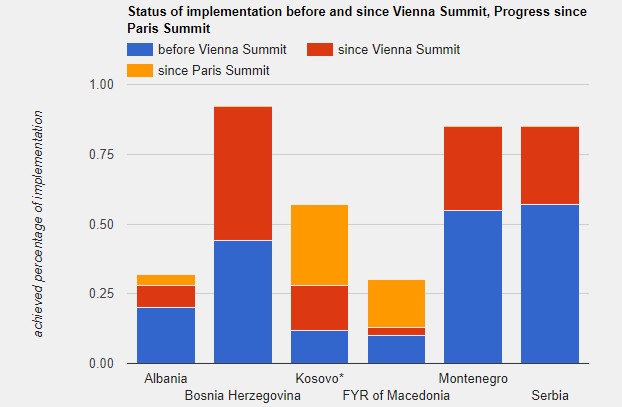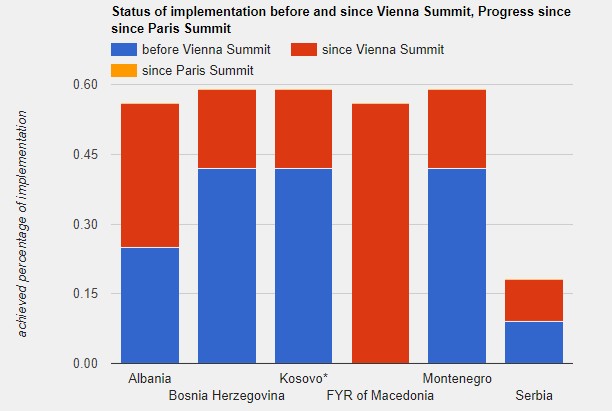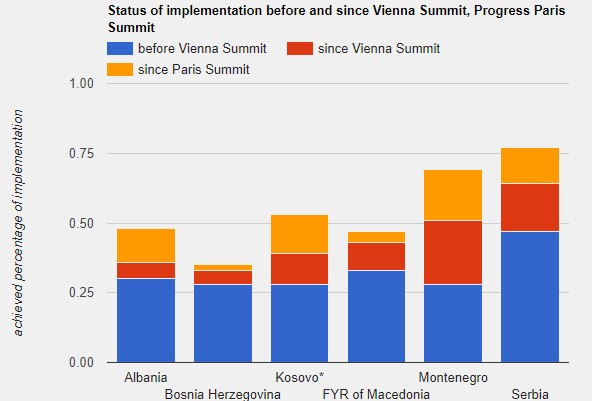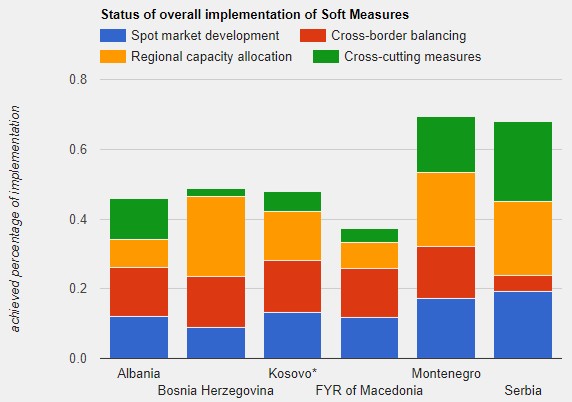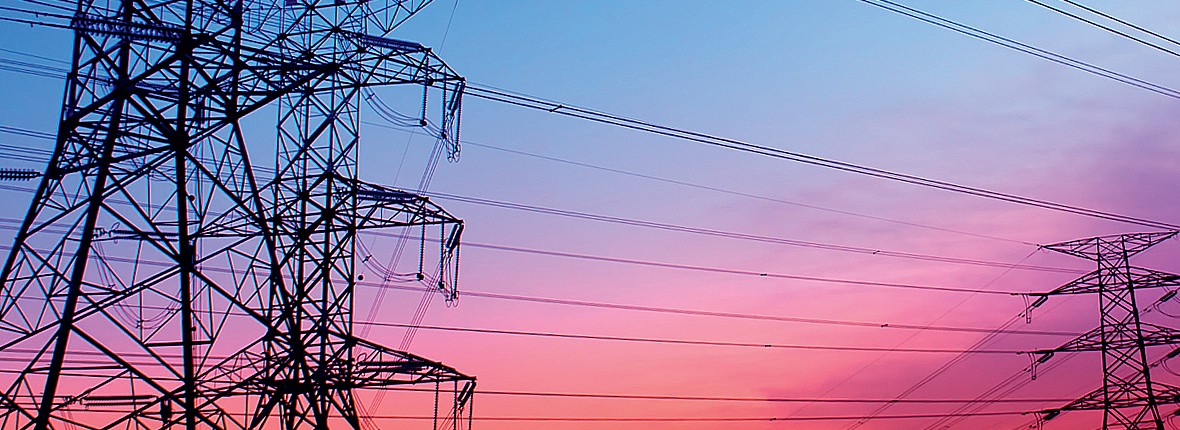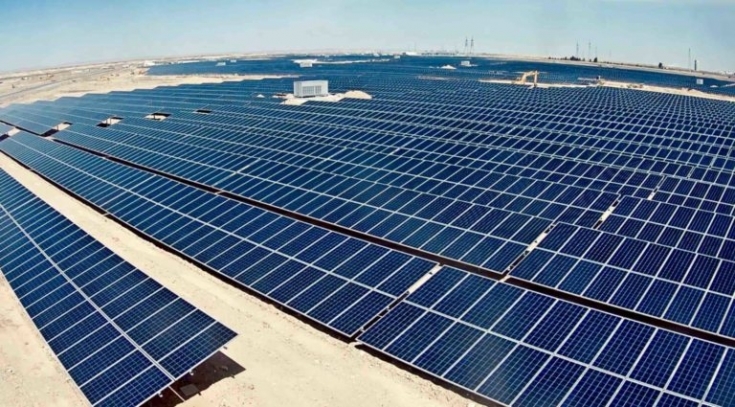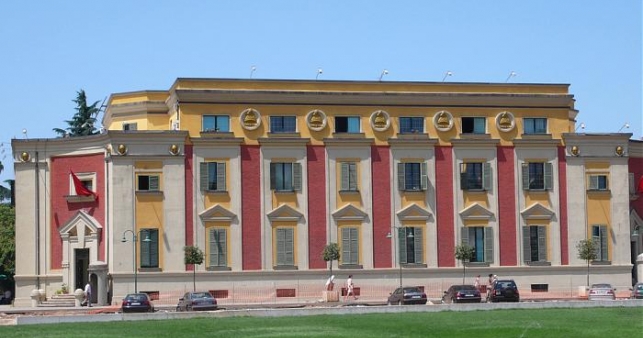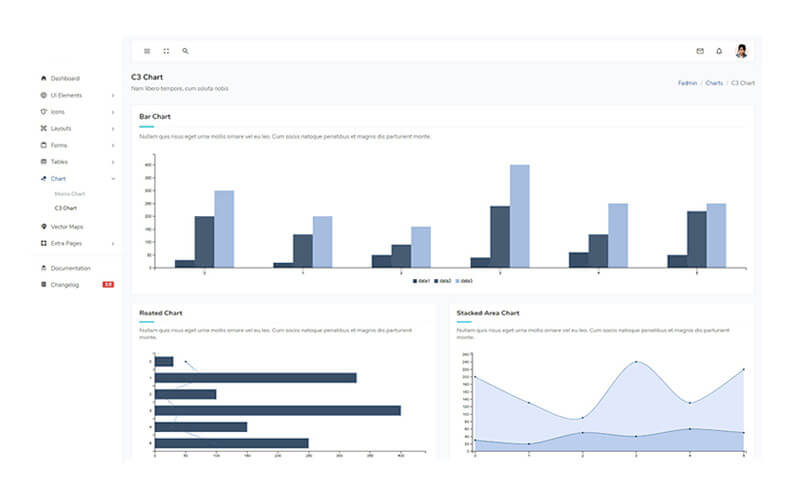
WB6 electricity report: Slow progress in establishing day-ahead markets
The Western Balkan Six (WB6) countries have been progressing in developing their electricity markets at different pace, while the regional market is still to take shape, the Energy Community Secretariat assessed in its WB6 Electricity Monitoring Report.
The report was presented at the WB6 Summit in Trieste on July 12. It analyses progress made at national and regional level in the implementation of energy soft measures since last year’s Summit in Paris. Those measures were agreed in 2015 within the WB6 initiative which aims to enhance cooperation between the countries in the region. Since then, the Western Balkan countries have implemented more than half of the energy soft measures, the report says.
“To speed up the process, governments will have to adopt decisions that will remove the remaining blocking points, as well as to step up regional cooperation of both Western Balkan 6 parties and EU Member States towards an efficient integration of their day-ahead and balancing markets”, the report concludes.
SEEPEX only functional day-ahead market in region
Western Balkans countries have been still slowly progressing in establishing day-ahead markets and their coupling.
The report states that the power exchange SEEPEX in Serbia remains the only functional day-ahead market in the Western Balkan 6 although other countries have taken activities for starting a day-ahead market. Montenegro stands out in this regard with the establishment of the power exchange company in June 2017.
The report notes that countries have mainly opted for the establishment of national power exchanges in spite of the fact that their markets are small in size, rather than to look for adhering to existing power exchanges.
The Energy Community recommends to the countries to carefully consider financial viability of the future power exchanges and measures that will contribute to boosting their liquidity, including through an efficient market coupling process.
Further steps needed towards balancing cooperation
The Energy Community estimated that truly regional balancing cooperation has still not taken off in the Western Balkans. The countries in the region have been developing models for cross-border exchange of balancing energy, but the activities are limited to bilateral cooperation, or within control blocks, such as trilateral cooperation of transmission system operators of Bosnia and Herzegovina, Croatia and Slovenia.
Serbia still not participate in regional capacity allocation
The progress in regional capacity allocation has also been slow. The only improvement is the inclusion of the cross-border capacities on the interconnection between Macedonia and Greece into the common regional auctioning performed by SEE CAO.
Serbia remains the only WB6 country that is not allocating any of its cross-border capacities through the regional auction office.
No initiative was taken towards Bulgaria’s membership of SEE CAO, for the purpose of allocation of capacities on the interconnection with Macedonia.
Progress achieved in unbundling
The most prominent progress since the Paris Summit was made in the area of price deregulation and unbundling of system operators. In four of the Western Balkan 6 countries, the transmission system operators applied for certification. The process was finalized successfully in Albania, where the transmission system operator was certified and subsequently became a member of ENTSO-E.
The report reminds that Serbian transmission system operator had not fulfilled the unbundling requirements of the Third Package.
Legal unbundling of the distribution system operator has still not been finalized in Albania and Bosnia and Herzegovina while functional unbundling is not yet complete in Macedonia, Montenegro and Serbia.
In Kosovo, price regulation was terminated for generation prices as well as the supply price for high voltage customers and the price for network losses.
For more information go to full report.

